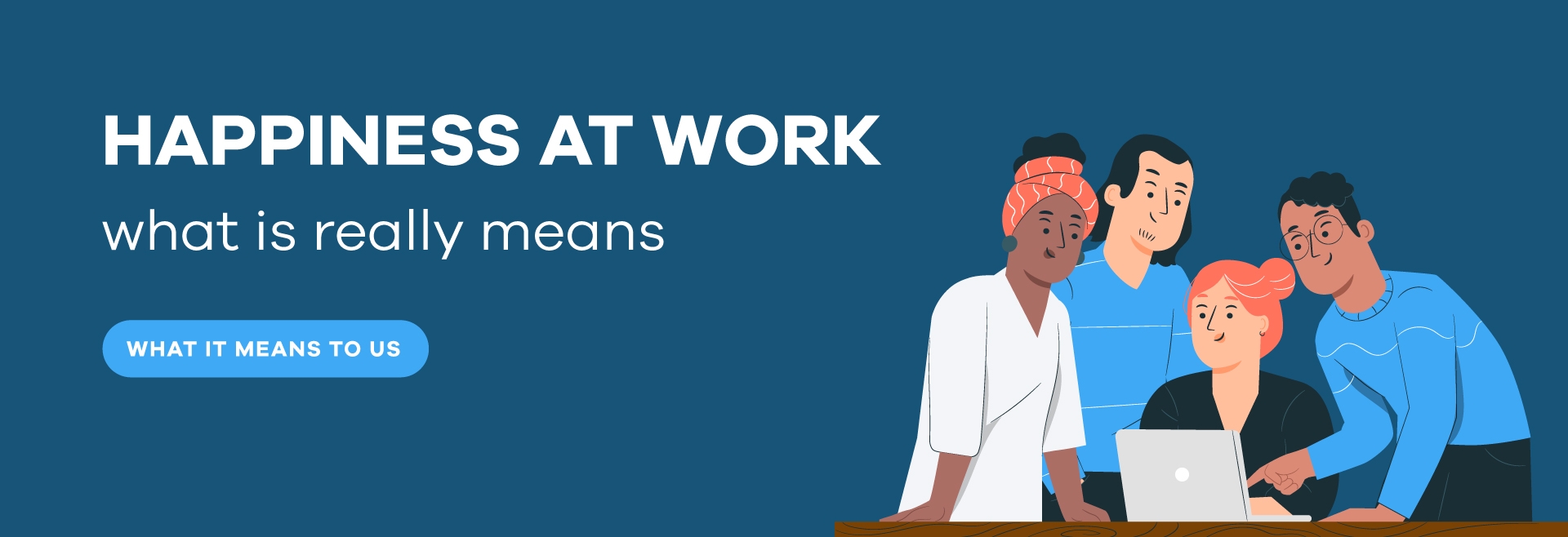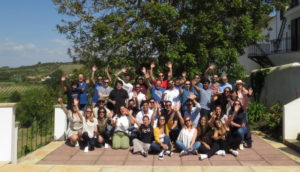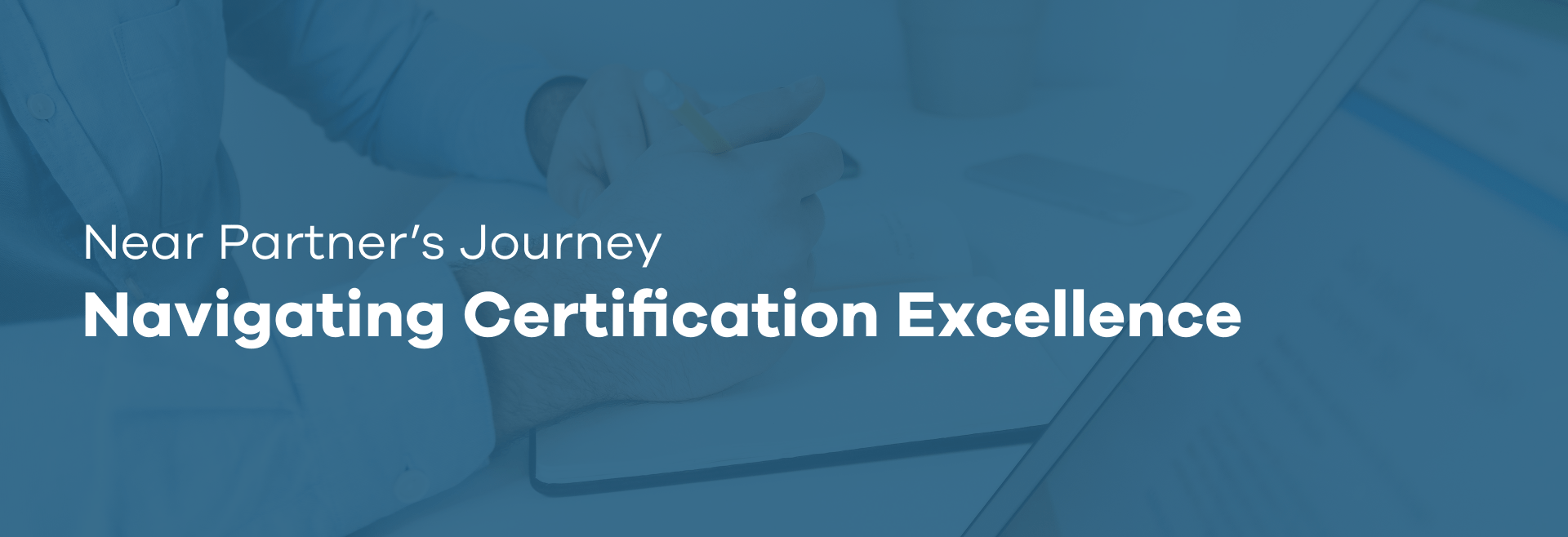
Happiness at work: what it really means
More and more people are talking about happiness at work.
So why is it still so hard to come by? This is what it means to us.
Spoiler alert: money is, and always will be, a decisive happiness factor for most workers. But even as tech companies put out all the stops to attract the best talent, with flexible work arrangements, higher salaries, and starchitect offices, worker unhappiness is at all-time high. This is about more than sustainable companies; it is about millions of people’s lives. After all, with such competitive conditions in tech market, what are the reasons that don’t allow happiness at work?
What is happiness at work really (not the HR definition)?
Managing happiness at work has become the number one mission of highly competitive companies. The end game is that employees feel fulfilled and motivated regarding their professional activities. But despite all the effort, money and awkward “optional” corporate hangouts, most are failing miserably at it.
Despite intense media focus and corporate spinning, happy workers are the exception: recent reports show how job unhappiness is at a staggering all-time high. Workers are experiencing staggering rates of disengagement and unhappiness and 60% of people reported being emotionally detached at work and 19% as being miserable. And those numbers hold true for workers in remote and hybrid arrangements, and even those working 30 hour-weeks.
So if it is not just about salary or working in your jammies, what is it about? Is it just “liking what you do”? Not counting the hours left on the clock or the days until the weekend? Is it about the recognition of colleagues, a good salary, a sense of purpose and meaningful work that impacts society?
It could be all that, and more. For some, it is the relations between colleagues, recognition and mutual help. For others, the events, results, the internal environment learning. And some value professional evolution and the feeling of purpose. Each person has their own “code” – unique personal and genetic circumstances, which shape their definition of happiness.
For most people, however, it is about fair treatment at work–a culture that emphasizes respect, community, and contribution acknowledgement. This is not surprising when we consider that, on average, each of us spends about 90,000 hours working throughout our lives. Higher salaries quickly depreciate if day-to-day life is austere, inflexible, tense, heavy, or tedious.
Of course, you can’t be happy 100% of your time at work. But you can choose how to think about things, how to react, and how to shape circumstances. And this is where leaders and organizations come in, with policies, practices, norms, and cultures that contribute to happiness —or not.
Many organizations still adopt a tactical approach, providing moments of well-being, but without creating a true culture of organizational happiness. This requires a long-term strategic vision based on shared values, and an investment to identify what is most important to each employee that is not limited to isolated initiatives. It is essential to create a follow-up process to act on these issues, as each employee is in a specific professional and personal phase and has different needs. Otherwise, it will be impossible for companies to keep up with their human capital needs.
Why is Happiness Management so important?
The latest reports simply reinforce what we all already know: happy employees are more productive, feel better in their own skin and contribute to society. When you work surrounded by happy people, communication is fluid and healthy, contributing to a good working environment. When you do not, the whole atmosphere can feel claustrophobic. If it gets bad enough that someone leaves, it affects the entire team – feelings of loss are inevitable and can compromise internal dynamism.
Happiness is and will always be an intrinsic state, so no one or no company can be fully accountable for an individual’s happiness. But companies – and managers in particular – do have a role to play. An essential part of the solution for the concerning number of workers that express job dissatisfaction, disengagement, and burnout, is better leaders in the workplace.
Businesses can strive to create conditions for each individual to find their own definition of happiness at work. Yes, people go through challenges and difficulties, and it is not always possible to get happy about life. It is possible, however, to provide the environment and resources to face circumstances in the best possible way.
How Happiness works at Near Partner
At Near Partner, we take our role in providing a fun and meaningful work environment very seriously. This is how.
Encourage well-being
You got to have time to relax during an intensive, productive workday, to avoid burnout and waste hours lingering away at your desk. That is why we create fun spaces, such as ping-pong and relax station. Our Partners do understand the importance of balance and cohesion, so they created monthly Games Night, where we share board games and a lot of fun.
Unite the team
It sounds cliché, but we just love it. We organize meetings and get-togethers outside the work sphere to get to know our B-side – that part of us that does not show up for work. And on special occasions or whenever we reach a certain milestone, we are happy to celebrate it together.
Promote dialogue
Again, not to sound cheesy, but people have a voice at Near Partner. It is not just about being the loudest or the most senior, you are welcome to chip in. We make the most of each one’s skills in the company’s decisions. It is not just about happiness – it makes sense not to waste talent, and it is how we are unable to create better products and services.
Provide consistent feedback
Did something great? Outstanding. Dropped the ball? We will let you know and have a frank discussion about that as well. No problem – there are no superheroes here, no one is on top of their game every time, all the time. Missteps happen and as long as people deal with them head on, we get through it stronger. That is why we share consistent and mutual feedback on where and how to improve together and as a team.
Provide growth opportunities
Here, people are free to search for other opportunities that allow them to grow. There is no shortage of growth opportunities at Near Partner. Challenging projects, demanding customers, new colleagues from around the globe and with different backgrounds – there is always something new going on. It is what enables us to evolve professionally.
There are also alternative career paths – is Salesforce development not working for you anymore? Try your hand at Project Management. Stagnated in low-code development? Maybe UX is the way to go. Daniel Pinho is the perfect example of how change can impact your growth, he started as an Outsystems Developer and he is now part of our Salesforce team.
Make it flexible
Remote, hybrid, physical, or something in between? At Near Partner, the work-life balancing act is fluid. People are free to make their own arrangements, that best suit their lives. Yes, in-person collaboration is important and, but flexibility is built into our source code.
Happiness Management: The Near Partner’s Superpower
We are proud to say that Near Partner has been ranked by Happiness Works 2021 in the top 20 happiest companies. By the words of our CEO and Founder, Pedro Veloso, “Near Partner was born from the notion that when good people come together, in a perfect blend of comfortable surroundings and interesting challenges, a virtuous circle of innovation emerges.”
And that’s our superpower, from day one: putting work, empathy, mutual help, and kindness to each other in our top priorities, the basis of our culture today. This is our formula to a happy work environment.
For our Head of Data Analytics, Filipe Sá, working in Near Partner is to “learn, find new challenges, and meet an exciting team”. Also, Nelson André, our OutSystems Champion views Near Partner as a workplace strongly committed to everyone’s personal and professional development. “It may seem corporate propaganda, but here it actually means something.”
Get to know us, come aboard, and work with one of the happiest companies in Portugal!






